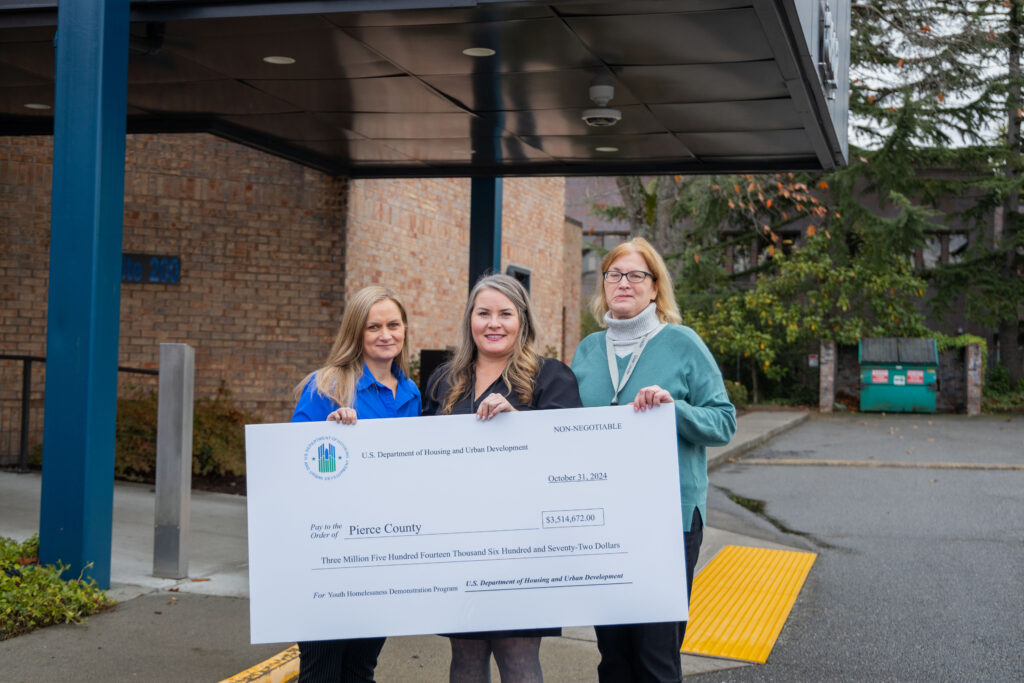
Native American Heritage Month, celebrated every November, is a time to honor and acknowledge the rich cultures, histories, and contributions of Indigenous peoples in the United States. This dedicated month offers a powerful opportunity to highlight the strength, resilience, and diversity of Native American communities.
Native American history is intricately woven into the fabric of the nation’s past. Long before the arrival of European settlers, Native Americans inhabited these lands, cultivating advanced societies with their own systems of governance, languages, and cultural practices. Yet, their history also includes forced displacement, broken treaties, and systemic marginalization. Here in Pierce County, two boarding schools caused immeasurable trauma and pain. Native American Heritage Month helps ensure that this past is remembered and respected.
By celebrating Native American Heritage Month, we also foster a deeper understanding of contemporary Native American issues. From ongoing land rights struggles to language and culture preservation and revitalization. It’s a chance for all of us to listen, learn, and engage with the challenges and successes of Indigenous peoples today.
Native American Heritage Month encourages us to build a future that respects Native contributions and stewardship. It’s a call to embrace a more thoughtful narrative of our shared history, fostering appreciation, reconciliation, and support for Native communities in meaningful ways. By recognizing this month, we affirm that Native voices matter, not only in the past but in the present and future as well.
We have worked with intention and respect to form strong partnerships with the four sovereign tribal nations who reside in Pierce County. There are many ways our work aligns – think water quality and salmon restoration, economic growth, and diversity, healing for individuals and communities.
This November, I encourage you to participate in Native American Heritage in a more direct and tangible way. And there are plenty of ways to do it in Pierce County! Here are several opportunities to learn more about local tribal history and culture:
1. Visit the Washington State History Museum
Located in downtown Tacoma, the Washington State History Museum holds exhibits that explore Native American history, art, and culture. Check for special programming during November that focuses on Indigenous communities and their contributions to the region.
2. Attend Local Cultural Events
Look for events hosted by local tribes such as the Puyallup Tribe of Indians (PTOI). I especially like the Canoe Journey and Landing each summer. This last August the PTOI hosted a Pow Wow for many tribes and ceremonial dancing. Other events often include storytelling, traditional music, and educational workshops. Check the website for:
The Puyallup Tribe of Indians: https://www.puyalluptribe-nsn.gov/
The Nisqually Indian Tribe: http://www.nisqually-nsn.gov/
The Squaxin Indian Tribe: https://squaxinisland.org/
The Muckleshoot Indian Tribe: https://www.muckleshoot.nsn.us/
3. Support Native-Owned Businesses
Recognizing Native American Heritage Month can also be about supporting Native entrepreneurs. Tacoma and the surrounding area are home to various Native-owned businesses and artists. Purchase Native art, jewelry, crafts, or foods to directly support Indigenous creators.
4. Learn at Local Colleges or Universities
Local institutions like the University of Washington Tacoma, University of Puget Sound or Tacoma Community College may offer public lectures, panel discussions, or virtual events during November. These events often feature Native scholars, historians, and activists sharing perspectives on Native issues, history, and culture.
5. Read and Share Native Literature
Support Native American authors by reading and sharing books, poetry, and writings that reflect Indigenous experiences. The National Museum of the American Indian is a fantastic resource for this.
By engaging with these activities, you can not only celebrate Native American Heritage Month but also grow in your appreciation and understanding of Native culture and history.
Switching gears, as part of our DEI video series, we recently produced a segment on expanding language access for our residents. We have a very diverse community that is growing more so every day. Providing our critical services and information so they can be clearly understood by our residents is essential, regardless of their native language.
I wanted to share this video with you, and thank Stefanie, Kim and Trixy for their focus on helping everyone access our services.
Before I close, I want to share some late breaking good news!

We just learned that Human Services has been awarded $3.5 million from the Department of Housing and Urban Development (HUD) to address youth homelessness – that is one heck of a big check! We’ve been trying to obtain this funding for several years and the team is rightfully elated. Great job, Trish Crocker, Devon Isakson and Valeri Almony! Think of the young lives that will be forever changed because of your work!
Thanks for reading,

Bruce
